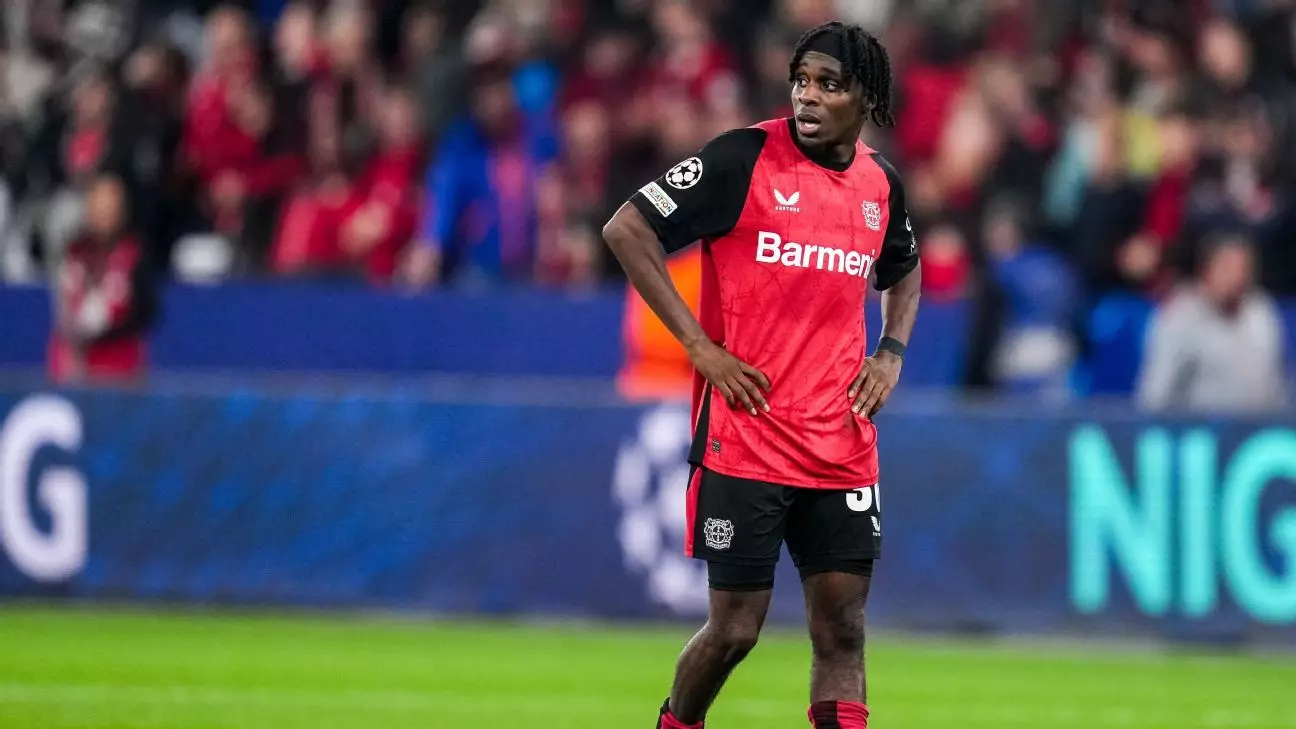Bayer Leverkusen, once buoyed by a glorious season culminating in domestic victory, has found itself navigating a less glamorous reality at the start of the 2023-24 Bundesliga campaign. The team, affectionately referred to by fans as “Laterkusen” during their unbeaten run, is now grappling with an unexpected string of setbacks that have led to a reappraisal of their capabilities. This article aims to delve into the reasons behind this decline and explore how the psychological and tactical hiccups have manifested on the pitch.
Last season, Bayer Leverkusen leveraged a powerful synergy among players that allowed them to snatch games out of the jaws of defeat, consistently scoring late goals to solidify their position as double winners. This season, however, that composure appears to have eroded significantly. With just ten matches played, the squad has already squandered an alarming 11 points from winning positions, a statistic that belies their on-paper strength and raises questions about their mental resilience.
Key matches have exposed vulnerabilities. For instance, the team’s shocking 3-2 loss to RB Leipzig after leading comfortably at 2-0 highlights the fragile mental state of the squad. In contrast to last season’s metal fortitude, where the club would typically build on their advantages, this season seems marked by a troubling trend of letting leads slip away. Such inconsistencies understandably breed frustration, both on the field and from the stands.
Underlying the slips in performance are various leadership and communication failures within the squad. The players suggest a lack of “Körpersprache” (body language) which is integral for maintaining momentum and confidence. Captain Lukas Hradecky has openly acknowledged his individual errors that contributed to the team’s woes, yet such admissions must translate into meaningful changes on the pitch.
Moreover, the discourse surrounding team dynamics indicates that communication breakdowns occur frequently during critical phases of the matches. Granit Xhaka’s observations on internal communications reflect a broader concern that the players are not operating as an interconnected unit. A cohesive approach is essential for any team aiming for glory and, regrettably, Leverkusen’s disjointed play reveals a lack of synergy across the squad.
On paper, Bayer Leverkusen’s squad appears bolstered by the arrival of promising new players like Martin Terrier, Aleix García, Jeanuël Belocian, and Nordi Mukiele. Yet, their assimilation into the team has been less than ideal. Each has faced hurdles in establishing themselves as vital components of the squad, resulting in a lack of depth and adaptability that was crucial in their previous successful campaign.
García’s limited appearances highlight a troubling gap in midfield robustness. While Xhaka can provide a steadying presence, the absence of a strong partner in midfield—particularly one capable of breaking up opposition play—has seen the team struggle defensively when they lose possession. This is a stark contrast to last season, where a well-oiled midfield machine helped them dominate both possession and territory.
Immediate Challenges Ahead
As the season progresses, Bayer Leverkusen finds itself adrift of the title race, trailing nine points behind arch-rivals Bayern Munich. Title ambitions are all but extinguished early in the campaign, and with the UEFA Champions League offering both opportunity and threat, the club’s aspirations are tempered with caution. A historical rivalry looms, with a DFB-Pokal clash against Bayern approaching—a potential inflection point for Xabi Alonso’s management tenure at the club.
Conversely, Leverkusen cannot overlook upcoming challenges against mid-table teams like Heidenheim, where their propensity for conceding late goals could serve as a double-edged sword. The notion of a “Lucky Punch”—a late goal scored against the run of play—remains a real threat, and any complacency could hurt their ambitions of returning to form.
In summation, Bayer Leverkusen’s transition from doubles winners to a team negotiating a string of challenging performances serves as a stark reminder of the fine margins that define success in football. With issues ranging from poor communication and leadership failures to underperforming signings, the task ahead is multifaceted. The club must harness its historical strengths while fostering a renewed spirit and discipline if it hopes to navigate adversity and reclaim its position among Germany’s elite. With crucial matches on the horizon, the Werkself has limited time to galvanize its efforts—both on and off the pitch.


Leave a Reply